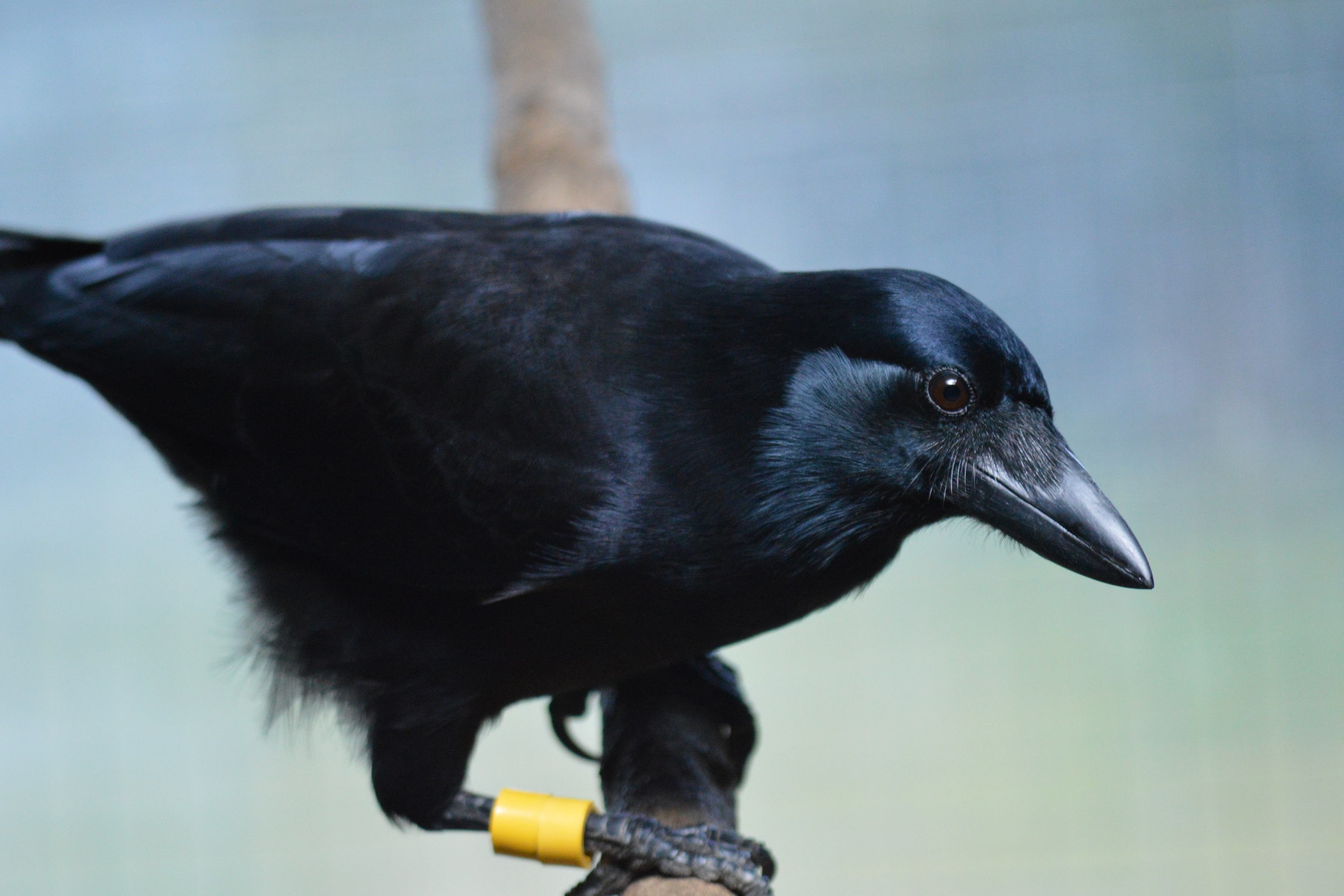Crows can use self-control to hold out for favourite food, study suggests
Researchers also found jays tend to settle for a less preferred food option when another bird is present.

Your support helps us to tell the story
From reproductive rights to climate change to Big Tech, The Independent is on the ground when the story is developing. Whether it's investigating the financials of Elon Musk's pro-Trump PAC or producing our latest documentary, 'The A Word', which shines a light on the American women fighting for reproductive rights, we know how important it is to parse out the facts from the messaging.
At such a critical moment in US history, we need reporters on the ground. Your donation allows us to keep sending journalists to speak to both sides of the story.
The Independent is trusted by Americans across the entire political spectrum. And unlike many other quality news outlets, we choose not to lock Americans out of our reporting and analysis with paywalls. We believe quality journalism should be available to everyone, paid for by those who can afford it.
Your support makes all the difference.Crows will hold out for their favourite food regardless of whether a rival bird is present, a study has indicated.
However, jays will settle for a less preferred food option when another bird is there rather than wait for their favourite and risk losing out, according to research by Anglia Ruskin and Cambridge universities.
Both species are capable of displaying self-control through delayed gratification, by holding out for something better, the study’s authors said.
Co-lead author Rachael Miller, senior lecturer in biology at Anglia Ruskin University, said jays tend to be less sociable than crows and rely more on hiding food for later use for survival.
She said this may be why jays appear to change their tactics and choose their less preferred, but immediately available, food option when another bird is present.
The researchers examined the behaviour of six New Caledonian crows and five Eurasian jays when presented with two food choices on a rotating tray – a high-quality and low-quality option.
For jays, the high-quality food was mealworm and the low-quality food was bread, while the favourite for crows was meat and the less preferred option was apple.
The birds had to remove the food from under clear plastic cups.
Each bird was tested separately, and they watched as both food types were added to the rotating tray.
At the same time, a second bird – either a direct competitor or a non-competitor bird – remained in an adjacent compartment.
Just before the less preferred food option became available on the rotating tray, the door between the compartments was opened, allowing the second bird access.
The bird being tested could then choose either the immediate option or wait 15 seconds for the delayed, preferred food to become available.
The study found each jay selected the high-quality, delayed reward (mealworm) while alone, but typically chose the immediate food choice (bread) when either a competitor or non-competitor bird was present.
Delayed gratification, in this case declining an immediate, small food reward and waiting for something better, demonstrates the ability for self-control
In contrast, each crow stood its ground and waited for the high-quality, delayed reward (meat) over the immediate, less preferred option (apple) in all three test conditions.
Dr Miller said: “Delayed gratification, in this case declining an immediate, small food reward and waiting for something better, demonstrates the ability for self-control.
“We have also used this rotating tray task to comparably measure self-control in young children.
“Both the Eurasian jay and the New Caledonian crow are capable of delaying gratification for a better reward, and we expected both species would wait for the higher-quality, preferred reward when alone and potentially with a non-competitor bird present, but would choose the lower-quality, immediate reward when a competitor was present, as waiting could risk them losing out.
“Interestingly, we found that jays were highly flexible in their use of delayed gratification, and this was entirely influenced by the presence of other birds, but the crows consistently chose the better, delayed reward, regardless of rival birds being present.
“These findings add to our understanding of self-control and the factors influencing delayed gratification in animals, which may relate to a particular species’ social tolerance and levels of competition.
“New Caledonian crows tend to be more sociable and tolerant of others than Eurasian jays, and while both hide food for later use, jays rely more on this tactic for their survival.
“This might explain why the more territorial jays altered their choosing strategy when competitors were present and selected the immediate, less preferred food to avoid missing out entirely.”
The study is published in the journal PLOS ONE.